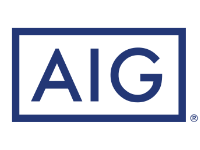Income protection insurance explained
What is income protection insurance, how much does it cost and how long will you get payouts for? We set out what you need to know to protect you, your family and your home.
INCOME PROTECTION INSURANCE IN SUMMARY
Could you afford to pay your bills if you can’t work?
- Get a regular income if you can’t work due to illness or injury
- Covers physical and mental health conditions
- Receive payouts until you can get back to work
What is income protection insurance?
Income protection insurance offers a regular income if you’re unable to work due to an accident or illness and will pay out until you return to work, you retire or the policy expires. This can help to cover your essential outgoings like the cost of your mortgage and bills to help maintain your lifestyle while you can’t work. Income protection insurance is also known as permanent health insurance.
Do I need income protection insurance?
Yes, it’s a good idea if you or others rely on your income. It can be particularly useful if you’re self-employed or if you are employed but you are only entitled to statutory sick pay (SSP).
But before taking out a policy, you should check:
- Do you already get income protection insurance from your employer as a benefit?
- Do you already have a type of illness cover through another insurance policy?
- Do you have savings you could use to tide you over if you can’t work. Although, consider whether you would have enough to cover a long period of ill-health.
If you’re not sure whether income protection insurance is right for you, it’s a good idea to talk it over with an expert. Our partners at LifeSearch offer fee free advice on income protection. They will compare quotes from a range of major UK insurers and all quotes given are without obligation.
Get Income Protection Quotes
Get fee-free advice and quotes from leading UK insurers
Get advice & quotes
Does everyone get income protection insurance?
Only 2 in 10 homeowners have income protection in place, according to Royal London. It’s research found that homeowners are three times more likely to have life insurance than income protection. But research from Homeowners Alliance and Lifesearch shows that 46% of mortgage holders say they would struggle to pay their mortgage within six months of losing their income, with 21% facing difficulties within just two months. So this means while many people may have protection in place for their loved ones if they die, they may struggle to cope financially if they can’t work due to illness or injury.
What does income protection cover?
Income protection insurance generally covers most illnesses and injuries that mean you’re unable to work. These include:
- Illnesses such as cancer, stroke and heart disease. As well as mental health conditions like depression, anxiety and stress.
- Accidents and injury. This could range from a car accident to putting your back out.
However, exactly what’s covered will depend on your policy. And you’ll only get a payout if you meet your provider’s criteria for being unable to work.
How long does income protection insurance pay out for?
Income protection insurance usually pays out until you return to work, you retire, you die or the policy ends, whichever happens first. And you can claim as many times as you need during the policy’s term.
However, if you take out short term income protection (STIP), policies are cheaper but will only pay out for a set period of time, usually between 1 or 2 years.
How much is income protection insurance?
The cost of income protection insurance in the UK typically ranges from £5 to £50 per month, although the average cost is around £15 a month, according to research by Iaminsured.
But the amount you’ll pay depends on many factors including:
- Age: You’ll usually pay less on premiums if you’re younger
- Occupation: What you do for a living can an impact on your premiums: the riskier your job, the higher your premiums will be.
- Length of time you’ll get a pay-out for: Policies that pay out for a shorter period if you make a claim are cheaper than those that may pay out until retirement.
- How long your deferred period is: You’ll usually have to wait a minimum of 4 weeks for your payments to start, this is known as the deferred or waiting period.
The amount you’ll pay will also depend on your premium type too. These are:
- Reviewable: Premiums could increase or decrease annually, based on industry or insurer data, such as claim statistics.
- Reviewable Age-Related: Premiums will increase based on age, but will also take into account industry or insurer data.
- Guaranteed Age-Related: Premiums will increase with age, but you’ll know how much they will be.
- Guaranteed: Premiums are fixed for the duration of the policy.
Get income protection advice and quotes. Search the UK’s leading insurers using the service provided by LifeSearch:
Get Income Protection Quotes
Get fee-free advice and quotes from leading UK insurers
Get advice & quotes
Example income protection costs
While the cost of income protection varies on different factors, here are a couple of examples of costs:
Example 1. For a 30 year old office worker, who’s healthy and a non-smoker, who wants £1,000 a month cover with a 3 month deferred period, it may cost you £5.89 a month, if you choose guaranteed premiums and a 2 year pay-out per claim. While for a full pay-out term, guaranteed premiums may be around £13.40 per month
See how these income protection costs may change depending on premium type and policy length.
– Reviewable age-related premiums with a 2 year pay-out per claim may cost £5.01 a month
– Guaranteed age-related premiums with a 2 year pay-out per claim may cost £5.17 a month
– Guaranteed premiums with a 2 year pay-out per claim may cost £10.17 a month
– Reviewable age-related premiums with a full pay-out may cost £5.01 a month
– Guaranteed age-related premiums with a full pay out may cost £10.76 a month
– Guaranteed premiums with a full pay out may cost £13.41 a month
Example 2. While if the same person is builder, guaranteed premiums for a 2 year pay out may be £7.61 per month, while guaranteed premiums for a full pay out may cost £21.74 per month.
See how income protection costs may change depending on premium type and policy length.
– Reviewable age-related premiums with a 2 year pay-out per claim may cost £7.61 a month
– Guaranteed age-related premiums with a 2 year pay-out per claim may cost £8.12 a month
– Guaranteed premiums with a 2 year pay-out per claim may cost £10.25 a month
– Reviewable age-related premiums with a full pay-out may cost £11.66 a month
– Guaranteed age-related premiums with a full pay out may cost £12.40 a month
– Guaranteed premiums with full pay-out may cost £21.74 a month
How much will I get from income protection insurance?
Income protection will usually cover up to 70% of your gross salary. The payouts are less than your salary because they’re tax-free. However, the amount you get may be affected if you have other income such as from benefits or other insurance policies.
When you take out your policy you’ll usually have the option to link your payout amount to a measure of inflation like the Retail Price Index (RPI). You’ll usually pay higher premiums if you do this but it means that any payouts will be in line with the increased cost of living in future years.
How does income protection insurance work
You’ll need to make five main choices about income protection insurance:
- How much cover do you need? This is usually up to 70% of your monthly income but you’ll need to decide how much is right for you.
- Length of cover term: You’ll also need to decide how long you’d like the policy to last for. Many people choose for it to last until they’ll retire.
- The benefit term: This means the amount of time the insurance will pay out for if you’re unable to work and need to claim. Many people choose long term income protection policies that pay out until retirement but you can choose a shorter term, like 1, 2 or in some cases 5 years.
- Deferred period: This is the period of time you’ll wait for before your payments will start when you make a successful claim. If your employer offers you sick pay, you may set a longer deferred period so that your income protection insurance kicks in after that ends. But if you’re self-employed, you may want to choose a short deferred period.
- What’s the definition of incapacity? This means what qualifies you to start getting your insurance benefit. The definition most insurers offer is ‘own occupation’, which means that if you’re ill and can’t do your current job, you’ll qualify to receive the benefit. But some insurers also offer stricter definitions like ‘any occupation’. This means that to qualify you must not be able to do your current job – or any job at all – if you fall ill.
Get Income Protection Quotes
Get fee-free advice and quotes from leading UK insurers
Get advice & quotes
What does income protection not cover?
Income protection insurance doesn’t cover you for:
- Death: Income protection insurance won’t cover you if you die. You’ll need life insurance instead. Read more in our guides Do I need life insurance? and Do I need life insurance for a mortgage?
- Redundancy: Income protection insurance only covers you if you can’t work due to health-based issues while you’re still employed, it doesn’t cover redundancy.
- Dismissal: Similarly, you won’t be covered for this under income protection insurance.
Can I get income protection insurance with a pre-existing health condition?
Yes, you can get income protection insurance if you have pre-existing health conditions in most cases. Depending on your circumstances, your insurer may increase premiums or exclude that condition from your policy so that you can’t claim against it in the future. But each insurer is different, so it’s a good idea to speak to an adviser who can explore your options.
Can l buy income protection if I’m self-employed?
Yes. In fact, it can be particularly useful for self-employed people because they don’t get any workplace benefits like sickpay. If you’re a freelancer, contractor or business owner, it’s important to consider how you’d cope financially if you needed to take an extended period of time off work.
What information do I need to get an income protection insurance quote?
Once you know the type of income protection insurance you want, to get a quote you’ll need to provide the following information:
- Your name, age and address
- Your occupation
- Whether your employed or self-employed
- Your annual income
- How long you’re prepared to wait before you get payments (the deferred period)
- The amount of cover you want based on your monthly income
And before taking out an income protection policy you must tell the insurer full details of you and your family’s medical history. If you leave anything out and then try to make a claim further down the line, your insurer may refuse to pay out.
You’ll need to answer all questions fully and tell the insurer if you have any dangerous hobbies or if you’re a heavy drinker. If you don’t tell them about something that affects a later claim, they may not pay out.
Get fee-free advice to find the right cover and compare quotes from leading UK insurers with our partners at LifeSearch. Get no obligation quotes now.
Should I buy income protection insurance with my mortgage?
Get a quote from your lender or mortgage broker when you take out your mortgage. But make sure you then shop around before deciding on the best policy and price. You can get fee free advice and compare quotes from major UK insurers with our partners at LifeSearch.
Is income protection insurance worth it?
Yes. If you can’t work due to illness but income protection insurance means you get a monthly income to support you and your family until you can get back to work, then it’s highly likely you’ll think it’s worth it. For fee free advice and no obligation quotes from major UK insurers, speak to our partners at LifeSearch.
Frequently asked questions
What is the difference between income protection and life insurance?
Income protection insurance covers a percentage of your income if you’re unable to work due to illness or injury. Whereas life insurance will pay out to your beneficiaries in the event of your death.
Are income protection insurance and critical illness insurance the same thing?
No. Rather than covering your income if you can’t work due to illness, critical illness insurance is designed to pay out a tax-free lump sum if you are diagnosed with one of the illnesses listed on the policy. The conditions covered are very specific and normally include certain types and stages of cancer, strokes and heart attacks, but each policy is different. It may be sold alongside life insurance or separately.
Can you have more than one income protection policy?
Yes, you can but it won’t mean you get a higher percentage of your salary covered. So if you have two policies that each cover 50% of your income, your payout will still only be 50%.
Do I need to tell my income protection provider if I change jobs?
Yes, you do need to tell your income protection provider if you change jobs. For example, if your new role is considered to be riskier your premiums may increase.
Does my income protection cover increase when my salary increases?
Your cover won’t automatically increase if your salary increases. You’ll need to contact your provider if you want to increase the cover level. If you do increase your cover, your premiums will be more expensive.
Does income protection insurance pay out if I die?
No, mortgage protection insurance doesn’t pay out if you die. If you want cover for this, you’ll need to take out a life insurance policy.
Does income protection cover my mortgage?
When you take out income protection insurance and successfully make a claim, you’ll receive a monthly income from the policy. It’s up to you how you spend this but if you have a mortgage you could use some of the money to cover your repayments.
Related Reads
Show More Articles+
Show Fewer Articles−
Top Owning Guides
Show More Articles+
Show Fewer Articles−
How this site works
HomeOwners Alliance Ltd is registered in England, company number 07861605. Information provided on HomeOwners
Alliance is not intended as a recommendation or financial advice.
Mortgage service provided by London & Country Mortgages (L&C), Unit 26 (2.06), Newark Works, 2 Foundry Lane, Bath
BA2 3GZ, authorised and regulated by the Financial Conduct Authority (FRN: 143002). The FCA does not regulate
most Buy to Let mortgages. Your home or property may be repossessed if you do not keep up repayments on your
mortgage.
HomeOwners Alliance Ltd is an Introducer Appointed Representative (IAR) of LifeSearch Limited, an Appointed
Representative of LifeSearch Partners Ltd, authorised and regulated by the Financial Conduct Authority. (FRN:
656479).
Independent Financial Adviser service is provided by Unbiased, who match you to a fully regulated, independent
financial adviser, with no charge to you for the referral.
Bridging Loan and specialist lending service provided by Chartwell Funding Limited, registered office 5 Badminton Court, Station Road, Yate, Bristol, BS37 5HZ, authorised and regulated by the Financial Conduct Authority (FRN: 458223). Your property may be repossessed if you do not keep up repayments on a mortgage or any debt secured on it.






